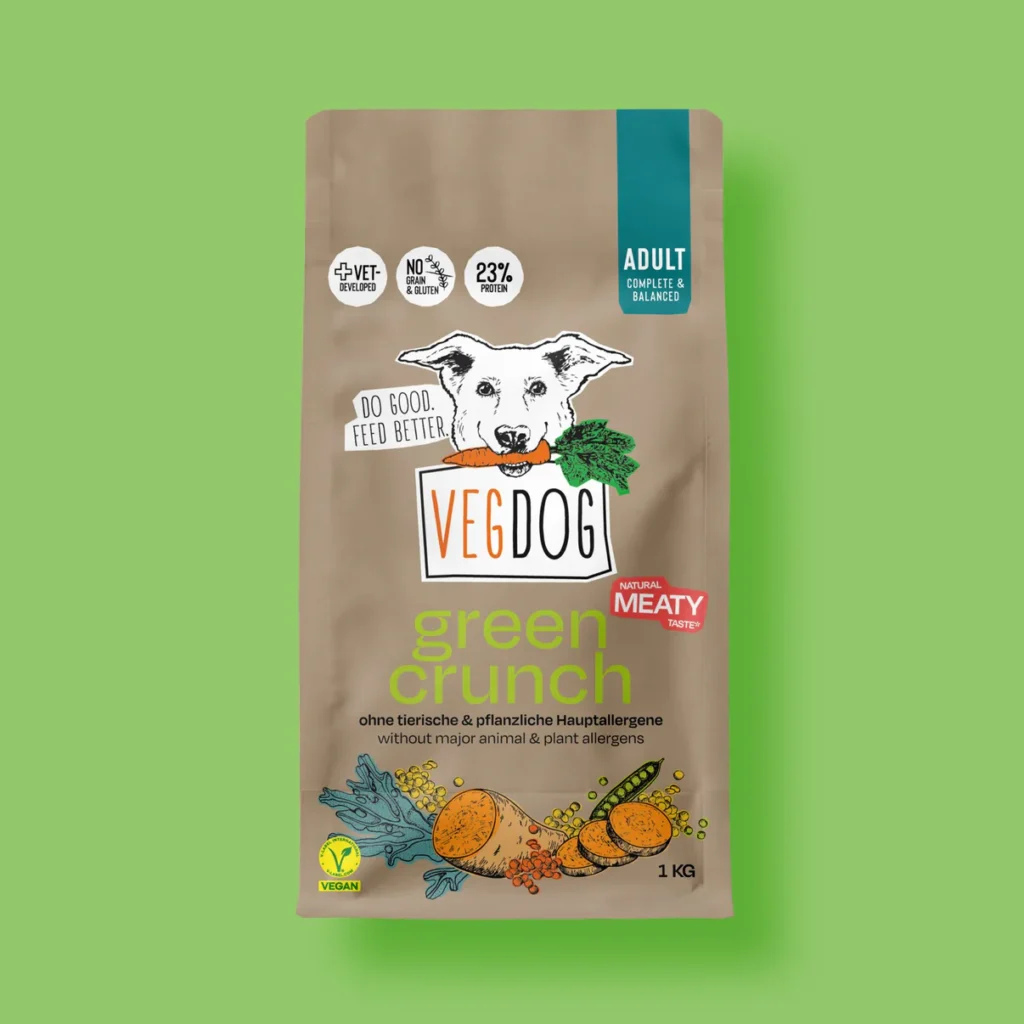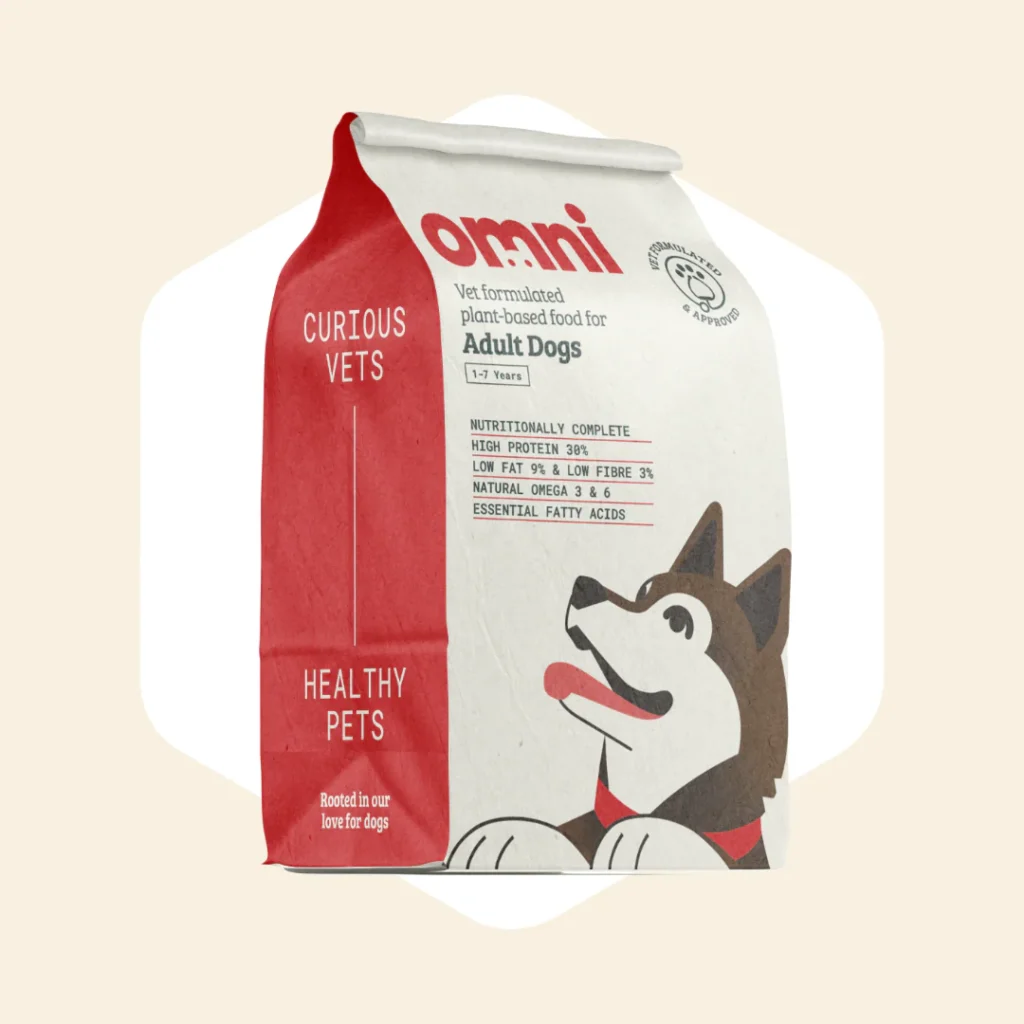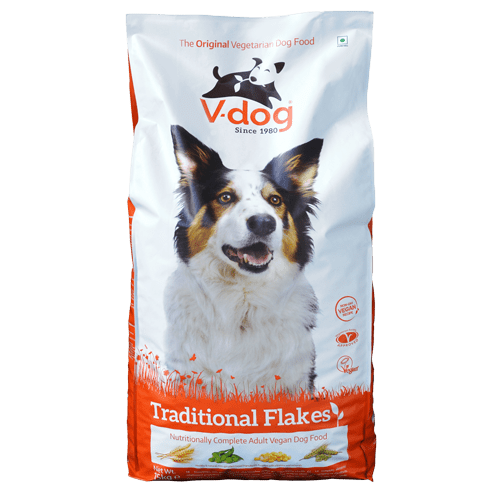Plant-Based Pooches: The Rise of Vegan Dog Food
What do you feed your dog? If you’re vegetarian, vegan or plant-based, it might mean feeding your pet a diet that you don’t approve of. Let’s examine the ins and outs of plant-based dog diets.

What do you think of when you think about dog food? You probably think about meat. We traditionally feed dogs all sorts of unpleasant animal parts. Old fashioned dog food is usually made up of all the bits of an animal humans don’t want to eat. You might go old school, and think about a string of sausages or a chicken leg! Either way, most of us don’t think about dogs eating vegetarian or vegan diets.
However, a growing number of pet owners around the world are starting to feed their pets plant-based diets. With plant based dog food becoming more common and new studies suggesting it may actually be healthier for dogs than a traditional meat heavy diet, we take a look into the details of vegetarian and vegan animal foods.
First and Foremost – is it Healthy?
We thought we should address this early on. Many people have the wrong idea about canine diets. We feel as if dogs are carnivores – certainly that is the popular conception of them. However, dogs are actually functionally omnivores, meaning they can and should eat a variety of foods – including a healthy helping of plant matter.
Studies have shown that dogs can eat a vegetarian or vegan diet and be as healthy, if not healthier than those that eat a traditional meat heavy diet. A study from the University of Winchester in 2024 found that there was a decrease in the occurrence of seven frequent indicators of illness in dogs that ate a vegan diet compared with non-vegan dogs . Previously, 10 other scientific studies have shown positive health outcomes in vegan or vegetarian dogs. The British Veterinarian Association now concludes that plant-based diets for pet dogs can be healthy, although they still warn dog owners to be cautious and take note of the effects on their specific dog.
Environmental Benefits of Plant-Based Animal Diets
The livestock industry is a massive net contributor to emissions of greenhouse gases worldwide. At least a quarter of all greenhouse gases that humans create can be linked to the livestock industry. The livestock industry is also a major contributor to deforestation and a massive user of fresh water. A large proportion of the livestock animals the industry produces go towards animal food.
A study by an academic at the University of Winchester suggested that if all the world’s dogs started eating an entirely plant-based diet, more C02 would be saved each year than the UK emits annually, as well as reducing the land used by livestock worldwide by an area the size of Mexico. A vegan dog diet worldwide would also save enough calories (most of which are lost in the conversion to milk, meat or eggs) to feed 450 million people worldwide.
What is in Vegetarian and Vegan Dog Food?
You might be wondering what is actually in vegetarian or vegan dog food – so let’s take a look. Generally, plant-based dog foods are made up of a range of vegetables – carbohydrate heavy vegetables like sweet potatoes, protein packed legumes and pulses. For example, Vegdog Adult Wet Food is made up of Potatoes, Millet, Lentils, Spinach, Pea Protein, Algae, Safflower Oil and Minerals.
Veggie, Vegan and Plant-Based Dog Foods
The Vegan, Veggie and Plant-Based animal food market is on the rise. It is estimated to be worth $16 million worldwide in the coming years. Not everyone who chooses to feed their animals a meat free diet is vegetarian or vegan, but it is an important issue for many of our members and supporters. Here are a few of our Vegetarian Society Approved Certification holders, whose products you know you can trust.

Vegedog Green Crunch was developed together with veterinarians and offers a wholesome, purely plant-based diet – optimally tailored to your dog’s needs.
Thanks to a carefully selected combination of ingredients such as lentils and peas, your four-legged friend’s protein requirements are optimally met. Sweet potatoes provide an extra portion of flavour and energy at the same time.

Omni Adult Dry Food keeps dogs aged 1-7 thriving with shiny coats, happy tummies, and boundless energy – all in a vet-designed, hypoallergenic recipe that’s protein-rich and gentle on their stomachs.
- Top of Form
- Fuels daily energy, vitality, and muscle tone.
- 30% protein to maintain strong, lean muscle, with 9% fat to keep weight healthy.
- Easily digestible ingredients to aid gut health and nutrient absorption.
- Free from chicken, beef, and dairy – helping reduce itchy skin, waxy ears, and digestive discomfort.
- Developed by veterinary experts to address food sensitivities at the root.
You may have recently seen on the news that Chris Packham has started to use Omnipet dog food for his two poodles. He chose to transition his pets to eating meat free for the environmental benefits.

Plant-based food to help your dog thrive.
Includes PhytoPlus®, a unique formulation of antioxidants and anti-inflammatories to help keep your dog in peak condition for their longest, healthy life.
All gently cooked at low temperatures to preserve the integrity of our quality nutrients, probiotics and Omega-3’s.
Bonza is formulated by vets and nutritionists to help keep your dog’s coat softer, skin clearer, joints more mobile, heart healthier, teeth cleaner and bones and muscles stronger.

V-dog Traditional Flake is the original complete, balanced and 100% VEGAN maintenance food for adult dogs. This is a muesli style blend of flaked cereals, peas and plant proteins fortified with vitamins, minerals and essential amino acids, which can be enjoyed dry or moistened.
Our recipe includes both Taurine and L-Carnitine supplements which help maintain a healthy heart.
